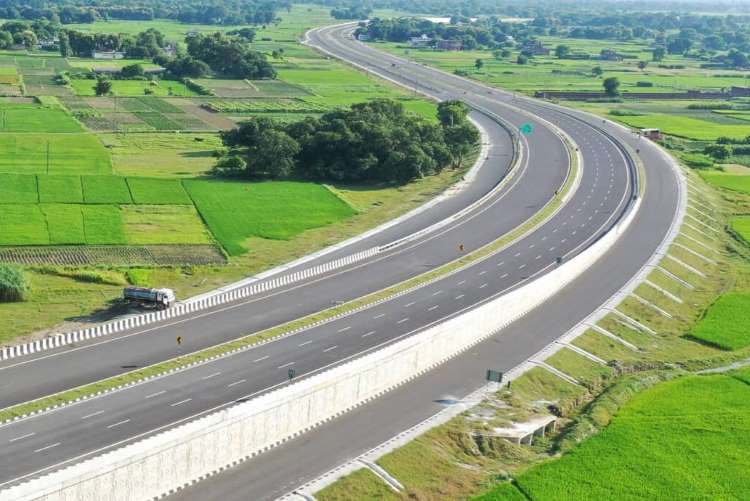In the early 1990s, the movement for the creation of Uttarakhand was driven by a desire for political transformation and development tailored to the unique geographical and cultural setting of the region. This movement was marked by widespread protests and demands for a governance model that would address the specific needs of the hilly region and its inhabitants. However, the realisation of these aspirations has been met with challenges in the years following the state’s establishment in 2000.
The fundamental issue at the heart of the movement was not merely administrative reorganisation, but a quest for an organic development model that could foster inclusive growth and respect the environmental fragility of the new state. Unfortunately, the envisioned transformation has not fully materialised. The political tranformation that follwed the creation of the state saw individuals with limited involvement in the statehood or environmental movements assuming key roles, often without a deep commitment to the movement’s foundational principles.
READ I Char Dham road project should limit damage to Himalayan ecology
Revisiting Uttarakhand dream
Despite the creation of a separate state, the residents of the Himalayan region have found their influence over policymaking remaining minimal. The promise of a governance model that prioritises the people, facilitated by a vibrant legislature and an efficient bureaucracy, remains largely unfulfilled. Instead, the state has mirrored the administrative and political practices of its predecessor, failing to leverage the unique characteristics and aspirations of its people for transformative development.
The pressing need for political and policy reforms is evident. Key areas requiring attention include revitalising the political system to foster genuine participation from the grassroots level and leveraging the traditional knowledge and skills of the local population for sustainable development. Questions of leadership, engagement, and the nurturing of a politically active citizenry are central to this discourse.
A new development paradigm
Environmental conservation stands as a cornerstone for Uttarakhand’s sustainable development. The region’s ecological fragility necessitates policies that prioritise the preservation of its rich biodiversity and natural resources. Initiatives aimed at combating deforestation, preserving water sources, and promoting sustainable agricultural practices are vital. These efforts not only support the livelihoods of local communities but also contribute to the global fight against climate change. Integrating environmental conservation into the development model ensures that economic growth does not come at the expense of the natural heritage that defines Uttarakhand.
The advancement of technology and education presents an unprecedented opportunity for Uttarakhand to leapfrog into the future. Investing in digital infrastructure and educational programmes can bridge the gap between remote areas and urban centers, fostering inclusivity and innovation. Technology can facilitate access to healthcare, education, and government services, breaking down barriers of distance and socio-economic status. Moreover, education serves as the bedrock for nurturing informed citizens who can contribute to and benefit from the state’s development policies. A focused approach on technology and education will equip Uttarakhand with the tools to address contemporary challenges and harness new opportunities.
Uttarakhand’s rich cultural heritage is a treasure that demands preservation and promotion. The state’s diverse traditions, languages, and festivals are not merely relics of the past but are living expressions of its identity and values. Policies that support cultural preservation can stimulate tourism, create jobs, and instill a sense of pride among the local population. Encouraging cultural industries and protecting intangible cultural assets ensure that development does not lead to cultural homogenisation. Celebrating and safeguarding Uttarakhand’s cultural diversity is essential for building a cohesive society that respects its roots while looking forward to the future.
The challenges of migration, both within and from the state, underscore the urgency of addressing policy shortcomings. The State Migration Commission’s report, highlighting the depopulation of villages and the migration crisis, calls for a strategic response to reverse these trends and ensure the state’s security and development. The ineffectiveness of the bureaucracy in addressing the specific needs of the Himalayan region, coupled with the lack of visionary leadership from successive chief ministers, has hindered the implementation of an organic development model.
The tragic incident involving Ankita Bhandari in 2022 and the subsequent debate over land laws and permanent residency have brought to the forefront the divisions within the state and the challenges to peaceful coexistence. These issues, along with environmental concerns and the need for economic revitalisation, demand a comprehensive approach to policy and political reform.
To move forward, Uttarakhand requires a radical overhaul of its political and economic systems, guided by the principles and aspirations that fueled the statehood movement. This includes adopting policies that promote environmental sustainability, economic development tailored to the state’s unique geography, and social policies that address the root causes of migration and disempowerment. Engaging the local population in policymaking, respecting traditional knowledge, and ensuring that development initiatives are inclusive and sustainable are critical steps toward realising the vision of a vibrant, self-reliant Uttarakhand.
The journey from the statehood movement to the present highlights the need for a renewed commitment to the original goals of Uttarakhand’s creation. By addressing the challenges of political engagement, policy relevance, and sustainable development, the state can embark on a path that respects its unique identity while securing its future prosperity and stability.
(Dr Prem Bahukhandi was a student leader of the movement for the formation of Uttarakhand state. He is is a trustee of Friends of Himalaya, a non-profit organisation based in Dehradun.)

